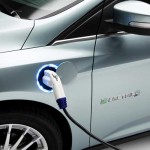 A study published recently by Low Carbon Vehicle Partnership mentioned that the current £5,000 subsidies offered to electric cars makers are not enough to make the electric vehicles cost competitive with regular ones.
A study published recently by Low Carbon Vehicle Partnership mentioned that the current £5,000 subsidies offered to electric cars makers are not enough to make the electric vehicles cost competitive with regular ones.
The total cost of electric cars or hydrogen cars may remain higher than gas or diesel car till 2025, even the incentive will continue to be assured and investments in infrastructure will complete the support. Even the petrol price will rise to £3 / litre; a low carbon vehicle will remain £500 to £750 more expensive in next to 15-20 years.
BusinessGreen quoted Greg Archer, the managing director of the Low Carbon Vehicle Partnership that the cost gap was likely to remain the same because conventional cars are expected to improve their fuel efficiency in response to oil price volatility. “We know the costs [of low carbon cars] are very high at the moment and they are going to fall substantially,” he said. “But it will take time, particularly as conventional vehicles are becoming more efficient.”
He added that according to the estimation of the Committee on Climate Change the UK roads have to reach 1.7 million electric cars and hybrid cars until 2020 to meet the EU emission targets. “While we want to get more low carbon vehicles on the road, most of our CO2 savings will come from driving efficiency in conventional vehicles,” he said. “1.7 million cars is still only about five per cent of the vehicle fleet and doesn’t really have a significant impact.”
Low carbon vehicles were likely to have a greater role to play post-2020. “We will need to increase low carbon vehicles to meet our 2050 emissions targets, but in the short term we need to progressively ramp up the market penetration of low carbon vehicles to take on a significant market share from 2025 onwards,” he said.
Although the uptake of grants for electric cars has remained low – only 680 were handed out in the first six months of the scheme – Archer said the government should maintain the current incentive regime.
Ministers must also increase investment in supporting infrastructure if consumers are going to make the switch to low carbon vehicles, he said. “We’ve seen support for electric car recharging and need to see similar support for hydrogen and bio-methane, which is not such a useful fuel for cars but could be really useful in trucks,” he said.
Critics of the report noted that while electric cars and hydrogen cars are likely to have a higher total cost of ownership than conventional cars for several years to come, the Low Carbon Vehicle Partnership’s calculations looked only at direct costs and failed to incorporate the social cost that results from higher emission vehicles.



